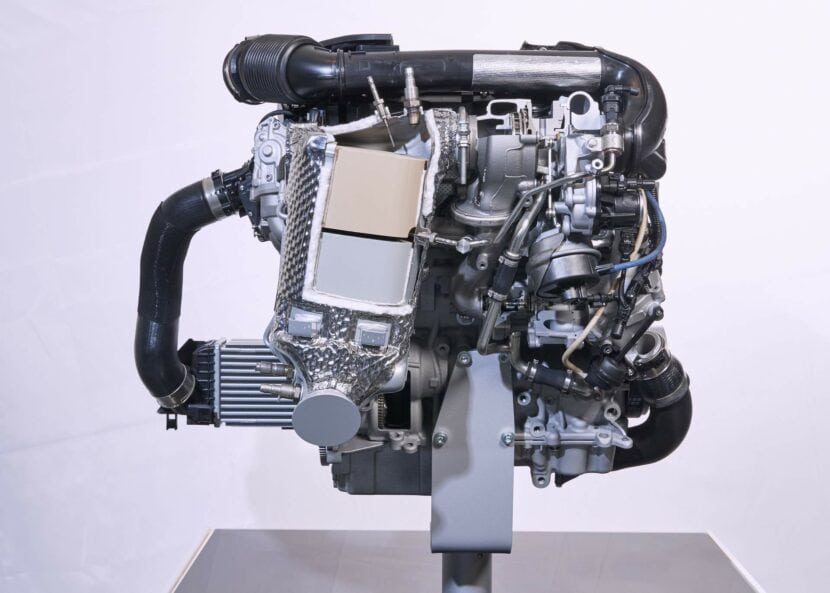In an period the place electrification dominates BMW’s long-term roadmap, the corporate hasn’t fully closed the e-book on inside combustion. Throughout a latest dialog with Bernd Körber, head of BMW product administration, we requested concerning the position of different fuels like HVO100 and artificial fuels in extending the lifetime of combustion engines. His response revealed each BMW’s preparedness and the regulatory uncertainties that can in the end determine their future.
Körber: Regulation Will Be the Deciding Issue
“HVO100 is unquestionably one thing we’re nonetheless pursuing,” Körber confirmed when requested whether or not the gas stays on BMW’s radar. “However for that, the important thing prerequisite is how it is going to be counted from a fleet consumption perspective. As a result of you have to go backwards and ask, will it’s thought of as a part of your gas consumption? That has a big impact—not just for us as BMW, but in addition for fleets like Touring. Does it depend in? Relying on that, it might change into a really attention-grabbing space. The great factor is, we’re ready for that.”
In brief, BMW can adapt its engines for HVO100, however with out regulatory credit score, the enterprise case would possibly should be reworked. Automakers in Europe are judged on tailpipe emissions, not the upstream carbon financial savings of renewable fuels, leaving little incentive to push these options until governments shift their stance.
Why HVO100 Issues
Hydrotreated Vegetable Oil (HVO100) is a renewable, paraffinic diesel different constructed from waste fat and vegetable oils. It might scale back lifecycle CO₂ emissions by as much as 90% and already works as a drop-in answer for appropriate BMW diesel engines in markets the place it’s out there. A number of European international locations—together with Sweden and the Netherlands—have began constructing fueling infrastructure, creating a chance for near-term CO₂ discount with out requiring new car designs.
BMW to Manufacturing unit-Fill Diesel Vehicles With HVO100 From 2025
BMW has already taken a tangible step: starting January 1, 2025, all new diesel automobiles manufactured in Germany will go away the manufacturing unit fueled with HVO100 as a substitute of fossil diesel. CEO Oliver Zipse confirmed the transfer in an interview with Bild, presenting it as a part of BMW’s wider sustainability roadmap. This ensures that prospects’ first expertise with their new automobiles demonstrates compatibility with renewable fuels, whereas signaling BMW’s readiness to scale up if rules assist it.
The transfer applies throughout BMW’s modular B-family diesel engines — the B37 (3-cylinder), B47 (4-cylinder), and B57 (6-cylinder) — all of which meet the EN 15940 customary that certifies paraffinic fuels like HVO100. The checklist of appropriate fashions is huge, stretching from the 1 Collection 114d to the 8 Collection 840d xDrive, and consists of SUVs such because the X5, X6, and X7. In response to BMW’s official FAQ, prospects can refuel with both HVO100 or standard diesel with out making any mechanical modifications.
Artificial Fuels Stay on the Horizon
BMW can be watching the event of e-fuels, produced from renewable electrical energy, captured CO₂, and hydrogen. Whereas Porsche has invested closely on this house, BMW is extra cautious, viewing them as a part of a possible multi-pathway strategy. Right here, too, the decisive issue is value and regulatory recognition. With out credit score towards CO₂ targets, artificial fuels danger changing into a boutique answer reasonably than a mainstream lifeline for combustion engines.
Ready however Ready
Körber’s feedback underline a key fact: BMW is technically prepared for different fuels, however gained’t transfer aggressively till the regulatory framework helps them. “Relying on how the circumstances develop, we might have constructed for that,” he added.
Which means the destiny of HVO100—and ICE longevity—might hinge much less on engineering and extra on politics. If acknowledged in fleet emissions targets, renewable fuels might purchase time for combustion-powered BMWs in markets the place EV adoption is slower. If not, electrification will arguably stay the one viable path ahead.



